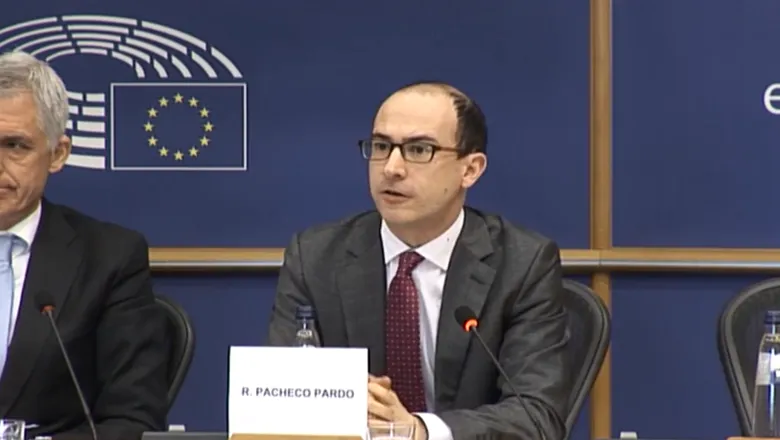20 February 2020
Path to denuclearisation 'slow but possible' in North Korea
North Korea can be encouraged to end its programme of nuclear proliferation, a King’s College London academic has told politicians.

Dr Ramon Pacheco Pardo told members of the European Parliament that, while immediate denuclearisation on the Korean Peninsula was unlikely, a “step-by-step” process setting controls on the North Korean (DPKR) nuclear weapons programme was possible.
Dr Pacheco Pardo, from the Department of European and International Studies, appeared before MEPs on the parliament’s security and defence sub-committee on 18 February, as part of a discussion on the security situation in east Asia and denuclearisation on the Korean Peninsula.
Speaking to MEPs, Dr Pacheco Pardo said: “It should be noted that the most realistic outcome of any denuclearisation agreement with the DPRK will not be full denuclearisation itself – at least for the foreseeable future.
“A cap and roll back of the DPRK’s nuclear weapons programme, however, is a realistic prospect. Chairman Kim Jong-un, on the day of the February 2019 Hanoi summit, and several DPRK officials, , have stated that their country is committed to denuclearisation.
“This can be interpreted as a commitment to take steps towards denuclearisation in exchange for incentives. In other words, it is possible to establish a sustainable step-by-step process setting controls on the DPRK’s nuclear weapons programme and leading to an end to its proliferation activities.”
Dr Pacheco Pardo told MEPs that the European Union (EU) should re-start political dialogue with North Korea as part of the process, and could also act as a broker and guarantor of any agreement reached between the United States and DPKR in future.
It was important also, Dr Pacheco Pardo said, for the EU to “continue to provide support to the non-proliferation regime” by throwing its weight behind the principles of the Nuclear Non-Proliferation Treaty and the work of the International Atomic Energy Agency.
You can watch video of Dr Pacheco Pardo’s appearance before the sub-committee here.
